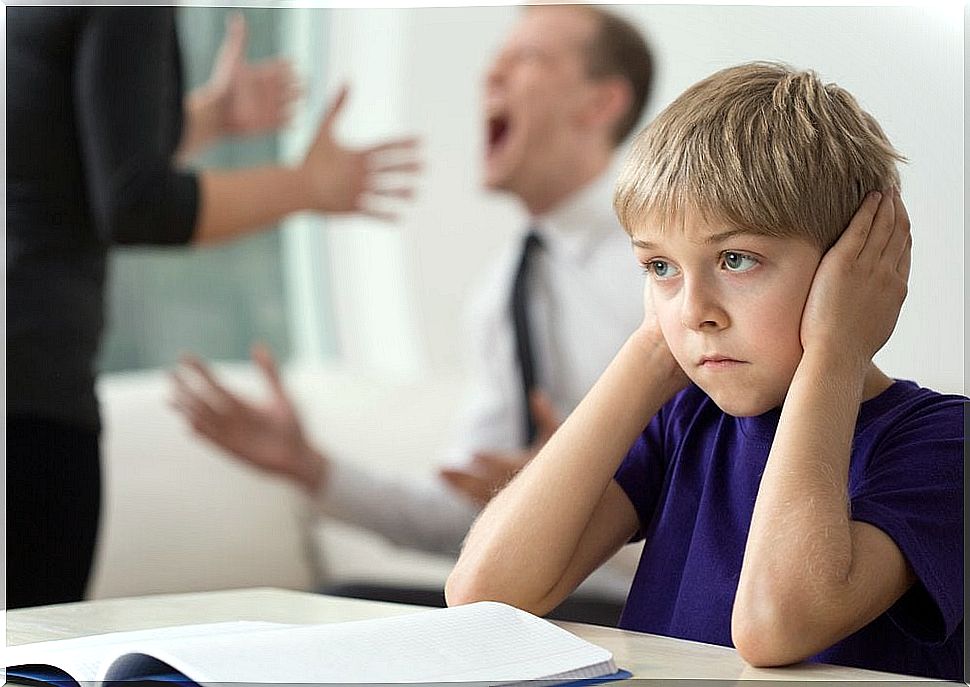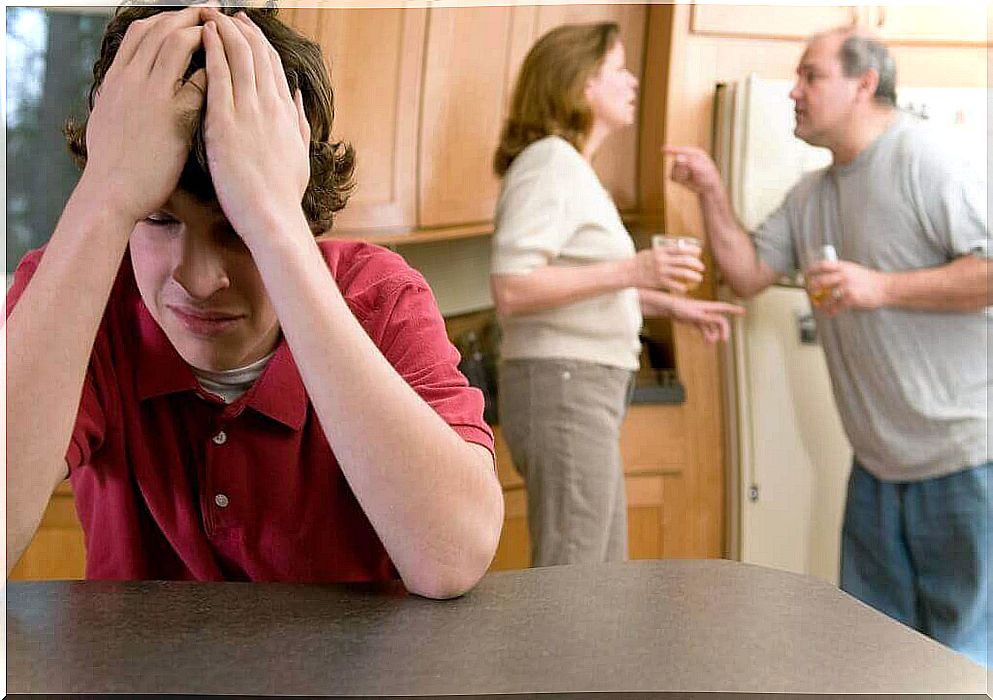5 Effects Of Fighting At Home On Children

No matter how exemplary or mature the couple’s relationship, there will always be disagreements and arguments at home. However, sometimes, the couple forgets the presence of their children during a fight, as well as the implications this can have on their development. For this reason, we share 5 types of effects that fighting at home can have on children.
Domestic violence and its effects
According to UNICEF, the family is the most important social institution for the creation, education and protection of its members. However, on some occasions, due to the lack of communication and emotional management tools, disagreements between the couple become serious conflicts that hurt not only them, but also the children.
In fact, experts point out that, worldwide, it is in the family environment where children are most at risk because of violence.
Perhaps you feel that arguments have no impact on your children. However, fights between parents, whether verbal or physical, are considered part of domestic violence.

For this reason, it is not uncommon for discussions at home to indirectly and profoundly affect children. Below we show you the reasons.
5 Effects of Fighting at Home on Children
In family relationships, several factors intervene. Among them are the social, emotional, behavioral and family structure aspects.
These same aspects are changed if there is violence at home, authoritarianism, distrust and aggression as common resources to “solve” problems.
As a result, all family members will understand violence as the norm. Of course, this will affect every aspect of your life, especially children, who do not have the ability to question or criticize their environment and family situation.
The repercussions are widespread, as they affect many areas of a child’s life. Still, in this article we will talk briefly and punctually about some of the most important effects.
1. Physical effects
The effects of fights at home can also manifest themselves physically on children. Among them, we can mention growth retardation, sleep problems, eating disorders, psychosomatic symptoms or illnesses, regressions, etc.

2. Emotional effects
It is important to note that when children do not have a healthy role model in their parents, they have difficulty understanding and understanding emotions. For example, it will be difficult for them to deal with frustration or anger by expressing it through aggression. As a result, they may engage in violence, both to others and to themselves.
Likewise, they may feel helpless and powerless in the face of traumatic experiences. This would lead them to show a withdrawn behavior, marked by anxiety and fear.
3. Social effects
Another effect of fights at home on children is their poor ability to communicate and establish friendships or closer relationships with people.
This is due to the fear of experiencing a traumatic event again. Or using distrust as a tool to avoid negative feelings associated with traumatic memories. In addition, they can develop lack of empathy, aggression or criminal behavior.
4. Cognitive effects
Children who witness their parents’ fights often have difficulty concentrating. It is difficult for them to pay attention, which affects their academic performance and development.
On the other hand, it is possible that it exhibits dissociation behavior. Dissociation is a defense mechanism in which the person tries to distance himself from reality to minimize conflict and stress.
This behavior is considered a disorder, as it alters consciousness, identity, memory and perception of what is happening around them.
5. Effects on your self-esteem
Because they are in a developmental stage, little ones can develop negative feelings about themselves. For example, they may believe they are guilty or responsible for the mistreatment. As a result, they isolate themselves due to their low self-esteem and anxiety.
Conclusions
Family violence is directly linked to aggressive and insensitive behavior that children can exhibit, even during adulthood. If the problem is not dealt with in time, it can become a threat to the safety and well-being of society.
As parents, we need to be responsible for our own actions and manage them in the best way possible. If we go through a difficult life, or if the family culture is impregnated with traces of violence, we don’t have to transmit the same problems to our children.
Let us try to change these patterns and resolve marital problems with civility and love. If it is difficult to do this, we can count on the help of an expert. The health and well-being of children is very important. Let’s help them be happy.








